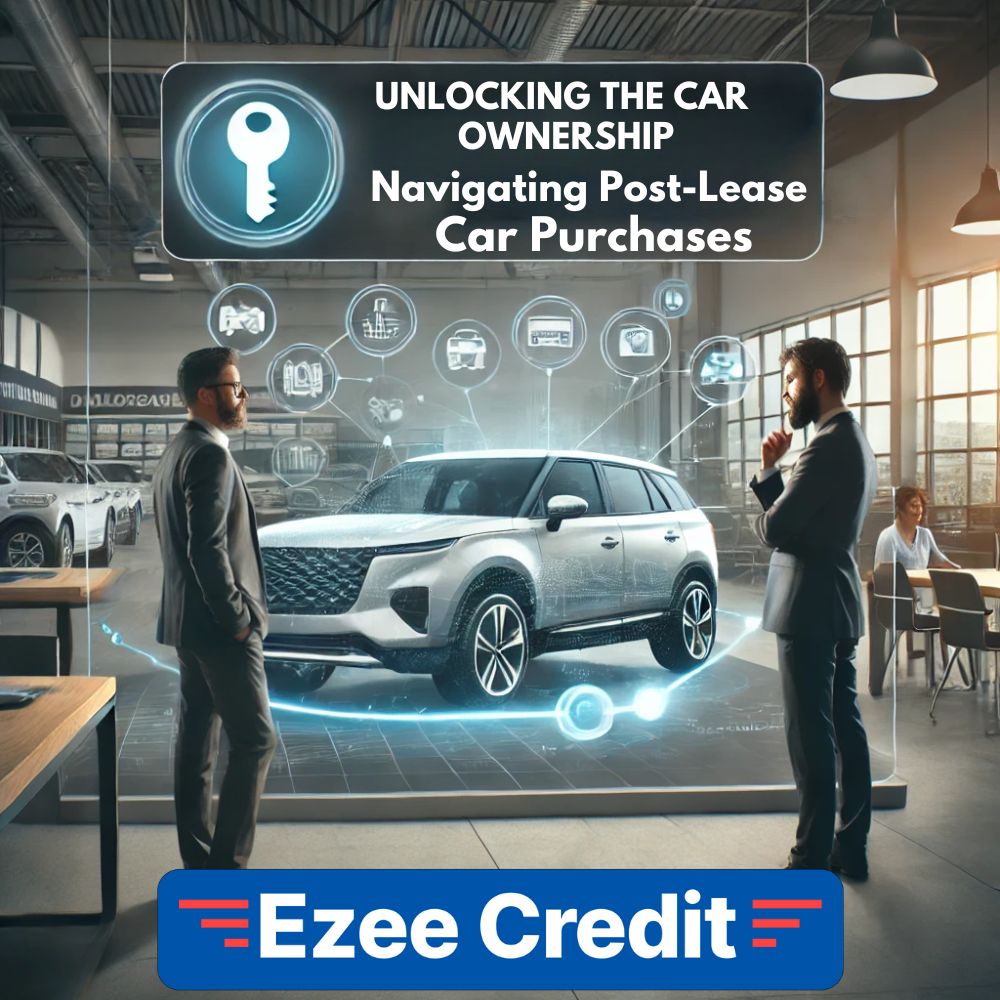
In the world of automotive leasing, the journey doesn’t necessarily end when the lease term does. Many lessees find themselves at a crossroads, contemplating whether to return their leased vehicle or take a different route—buying the car they’ve grown accustomed to driving. This pivotal decision prompts a myriad of questions about the feasibility, process, and financial implications of purchasing a leased vehicle, be it at the end of the lease term or even before. This comprehensive article addresses these queries, guiding you through the journey of transitioning from lessee to owner.
Can I Buy a Car After the Lease is Over?
Yes, you can buy a car after the lease is over. Most lease agreements include a buyout option that allows you to purchase the vehicle at the end of the lease term. This price, known as the residual value, is predetermined at the beginning of your lease and is based on the estimated depreciation of the vehicle.
Understanding Your Lease Buyout Options
Buying at Lease End
The end-of-lease buyout is a common scenario many lessees choose. This option involves purchasing the vehicle for its residual value as outlined in your lease contract. Opting for this route means you’re familiar with the car’s history and condition, potentially making it a more comfortable investment.
Early Lease Buyout
Some lessees decide to buy their leased vehicle before the lease term concludes. An early lease buyout can be appealing for several reasons, such as avoiding mileage overage fees or costly wear and tear penalties. However, this option requires you to pay the remaining lease payments plus the car’s residual value, and possibly an early buyout fee, depending on your contract’s terms.
Post-lease car purchase
Buying your car before the lease officially ends but close to its termination is another strategy. This approach is akin to an early lease buyout but closer to the lease’s conclusion, possibly allowing for better financial planning and saving for the buyout cost.
The Process of Post-lease car purchase
- Review Your Lease Agreement: Start by understanding the buyout terms outlined in your contract, including the residual value and any applicable fees.
- Evaluate the Vehicle’s Worth: Research the current market value of your vehicle to see if the buyout price is competitive. Tools like Kelley Blue Book or Edmunds can provide you with this information.
- Inspect the Vehicle: Consider having the car inspected by a trusted mechanic to identify any potential issues.
- Secure Financing: If you’re not paying the buyout price in cash, explore financing options. Shop around for the best auto loan rates from banks, credit unions, or online lenders.
- Negotiate the Buyout: While not always possible, some lessees successfully negotiate the buyout price with their leasing company, especially if the vehicle’s market value is lower than the residual value.
- Complete the Purchase: Coordinate with the leasing company to finalize the buyout, including transferring the title and registration into your name.
Benefits of Buying Your Leased Car
– Familiarity with the Vehicle: You have a detailed history of the car’s maintenance and condition.
– Potential Cost Savings: If the market value exceeds the residual value, you might be securing a good deal.
– Avoidance of Additional Fees: Buying the car can eliminate end-of-lease charges such as mileage overages and wear and tear.
Considerations Before Buying Your Leased Vehicle
– Financial Implications: Ensure that the buyout price is financially justifiable when compared to the vehicle’s current market value.
– Condition and Maintenance: Assess any upcoming maintenance needs or issues, as you’ll be responsible for future repairs once the manufacturer’s warranty expires.
– Future Vehicle Needs: Consider whether the vehicle suits your long-term needs regarding size, performance, and fuel efficiency.
Making an Informed Decision
The option to buy your leased car presents a unique opportunity to transition smoothly from leasing to ownership. By carefully weighing the financial implications, understanding the process, and evaluating the vehicle’s condition, you can make an informed decision that aligns with your personal and financial goals. Whether you choose to purchase at the end of your lease, opt for an early buyout, or negotiate a pre-end lease purchase, the key is to approach the decision with thorough research and careful consideration.
Embracing the option to buy your leased vehicle can open the door to a rewarding car ownership experience, provided you navigate the process with insight and preparation. Whether you’re seeking the comfort of familiar wheels or the financial benefits of a well-valued buyout, owning the car you’ve leased can be a fulfilling journey’s end.
Need a car?
You can find the best used car financing and leasing terms in London and Cambridge Ontario from us at ezeecredit.com
